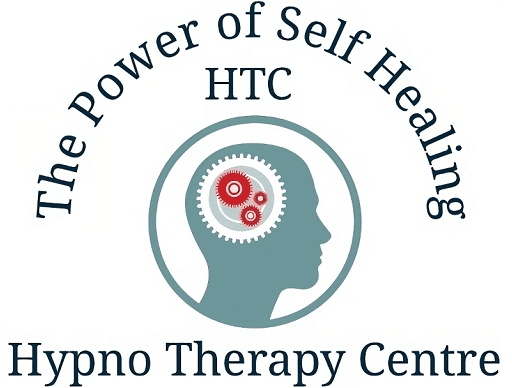
FAQS
FAQs (Frequently Asked Questions) on Hypnosis and Hypnotherapy.
What sets hypnotherapy apart from hypnosis?
Hypnosis and hypnotherapy may seem similar, but they have distinct differences. Hypnosis refers to a specific state of mind, while hypnotherapy is the name given to the therapeutic approach that incorporates hypnosis. In other words, hypnosis is a state, while hypnotherapy is the practice that utilizes this state for therapeutic purposes. Hypnotherapy is conducted by trained professionals, known as hypnotherapists, who have obtained the necessary qualifications, licenses, and certifications to provide effective and safe treatment.
What are the success rates of hypnotherapy?
According to a study, hypnotherapy has shown remarkable success rates in achieving long-lasting change. On average, individuals undergoing hypnotherapy typically require only four to six sessions to experience significant positive transformations. In contrast, other therapeutic approaches like psychoanalysis may require up to 600 sessions to achieve similar outcomes. Furthermore, the study revealed that after just six hypnotherapy sessions, an impressive 93 percent of participants reported positive results. In comparison, the group receiving psychoanalysis exhibited a recovery rate of only 38 percent. These findings highlight the high effectiveness and efficiency of hypnotherapy in facilitating positive change compared to other treatment modalities.
Is hypnotherapy effective?
Hypnotherapy can indeed be effective in assisting individuals in managing pain, stress, and anxiety. However, it’s important to note that Cognitive Behavioral Therapy (CBT) is generally considered the primary treatment approach for these conditions. CBT has a strong evidence base and is widely recognized as an effective therapeutic modality. Therefore, it is recommended to seek out a practitioner who is skilled in both hypnotherapy and CBT, as they can provide comprehensive support and integrate these approaches when necessary. This ensures that individuals receive the most appropriate and effective treatment for their specific needs.
What to expect during a hypnotherapy session?
During a hypnotherapy session, you will be guided into a trance-like state, allowing your mind and body to deeply relax and release any tension. While in this state of hypnosis, your brain enters a focused and attentive state, with reduced peripheral awareness. Clients often describe feeling a sense of calmness, lightness, focus, and may even feel a bit sleepy. It’s important to note that you are not asleep during the session; you can hear your hypnotherapist’s voice and retain memory of what is being said. You remain fully aware of your surroundings and are conscious of what is happening. In this receptive state, your subconscious mind becomes open to accepting positive suggestions provided by the hypnotherapist. This process allows for the integration of beneficial changes and improvements in your thoughts, behaviors, and overall well-being.
How does hypnosis work on the brain?
To understand how hypnosis influences the brain, it is important to familiarize yourself with the different brainwave frequencies. Our brains exhibit various frequencies, including Beta, Alpha, Theta, Delta, and Gamma. Each frequency is measured in cycles per second (Hz) and corresponds to specific patterns of brain activity, representing distinct levels of brain engagement and different states of consciousness.
What are the effects experienced after undergoing hypnosis?
Following a hypnotherapy session, individuals may encounter several beneficial outcomes that intensify over time, such as enhanced relaxation, improved sleep patterns, increased self-confidence, and heightened self-esteem. Additionally, one might encounter the halo effect, a delightful sensation of positivity experienced post-hypnosis.
Is it feasible for hypnosis to retrieve lost memories?
Although hypnosis can be employed for memory recovery, there is no guarantee of its effectiveness. It’s important to note that the subconscious mind is imaginative, and the images recalled during hypnosis may not necessarily depict an accurate reality. While they may seem like genuine memories, they could potentially be partially constructed during the recollection process. Therefore, it is essential to exercise caution and not unquestioningly believe everything that comes to mind.
Is it possible for hypnosis to modify your personality?
No, hypnosis cannot change an individual’s personality. There is a prevalent fear and misunderstanding surrounding hypnotherapy. Utilizing hypnotherapy to attain personal objectives simply involves visualization techniques while in a relaxed state of mind, allowing the desired vision to deeply embed itself in the subconscious mind.
Is it possible for hypnotherapy to cure anxiety?
Studies have indicated that hypnotherapy can aid in alleviating stress, fear, and anxiety. It can also be utilized to assist individuals in managing the symptoms associated with panic disorder. During hypnosis, individuals with panic disorder may be guided to focus on coping strategies for specific symptoms and overcoming restrictive behaviors.
Which is more effective: hypnotherapy or CBT?
CBT is a therapeutic approach, but it does not possess the ability of hypnosis to facilitate instantaneous changes in beliefs, perceptions, and behaviors, or to foster commitment to therapy procedures and outcomes. However, it is worth noting that CBT can enhance the effectiveness of hypnotherapy.
What are the effects of hypnosis on the brain?
When entering a hypnotic state, your brain undergoes a shift in functioning. It assists in narrowing your focus of attention, diverting your thoughts away from other matters. This state enables you to have better control over bodily sensations and reduces self-consciousness.
Is it acceptable to fall asleep during hypnosis?
Ideally, it is recommended to remain awake and alert during hypnosis to fully engage with the therapeutic process. If you fall asleep during a hypnosis session, the effectiveness of the suggestions for change may be diminished, as the subconscious mind becomes less receptive. Consequently, you might miss out on some of the potential benefits of the session. However, it’s important to note that what may feel like falling asleep could be a deep state of relaxation or a sensation resembling sleepiness. In such cases, you are still in a receptive state and can benefit from the therapeutic suggestions. It’s always best to communicate any concerns or experiences with your hypnotherapist to ensure they can adapt the session to your needs.



What Are The Brain Waves in Hypnosis?
Beta (14-40Hz) – The Waking Consciousness and Reasoning Wave. …
Alpha (7.5-14Hz) – The Deep Relaxation Wave. …
Theta (4-7.5Hz) – The Light Meditation And Sleeping Wave. …
Delta (0.5-4Hz) – The Deep Sleep Wave. …
Gamma (above 40Hz) – The Insight Wave.
1) Beta (14-40Hz) – The Waking Consciousness and Reasoning Wave
Beta brain waves are associated with normal waking consciousness and a heightened state of alertness, logic and critical reasoning. This is the state we are in while we work, have conversations and interactions in our daily lives. While Beta brain waves are important for effective functioning throughout the day, they also can translate into stress, anxiety and restlessness. The voice of Beta can be described as the voice in our head or our constant stream of thought.
2) Alpha (7.5-14Hz) – The Deep Relaxation Wave
Alpha brain waves are present in deep relaxation and usually when the eyes are closed, when you’re slipping into a lovely daydream or during light meditation. It is an optimal time to program the mind for success and it also heightens your imagination, visualization, memory, learning and concentration. It is the gateway to your subconscious mind and lies at the base of your conscious awareness. The voice of Alpha is your intuition, which becomes clearer and more profound the closer you get to 7.5Hz. This is an optimal state for hypnotherapy. This is a time when the constant chatter of the Beta state ceases to a large degree and the subconscious mind is open to suggestion.
3) Theta (4-7.5Hz) – The Light Meditation And Sleeping Wave
Theta brain waves are present during deep meditation and light sleep, including the all-important REM dream state. It is the realm of your subconscious and only experienced momentarily as you drift off to sleep from Alpha and wake from deep sleep (from Delta). Your mind’s most deep-seated programs are at Theta and it is where you experience vivid visualizations, great inspiration, profound creativity and exceptional insight. It is at the Alpha-Theta border, from 7Hz to 8Hz, where the optimal range for visualization and hypnosis or reprogramming of your mind begins. It’s the mental state which you consciously create your reality. At this frequency, you are conscious of your surroundings however your body is in deep relaxation. This is the description of what hypnosis is. It isn’t sleep, it isn’t a magic trick, it’s simply a relaxed brain wave state.
4) Delta (0.5-4Hz) – The Deep Sleep Wave
The Delta frequency is the slowest of the frequencies and is experienced in deep, dreamless sleep. Delta is the realm of your unconscious mind, and the gateway to the collective unconscious, where information received is otherwise unavailable at the conscious level. Among many things, deep sleep is important for the healing process – as it’s linked with deep healing and regeneration. When people don’t get enough deep sleep it is detrimental to their health in more ways than one. Once a person is in the Delta state even though their subconscious mind is very active, hypnosis would not be effective because the person would not be able to hear the suggestions given. This is a time when the subconscious is like a computer sorting, filing, organizing and discarding data.
5) Gamma (above 40Hz) – The Insight Wave
This range is the most recently discovered and is the fastest frequency at above 40Hz. While little is known about this state of mind, initial research shows Gamma waves are associated with bursts of insight and high-level information processing.
